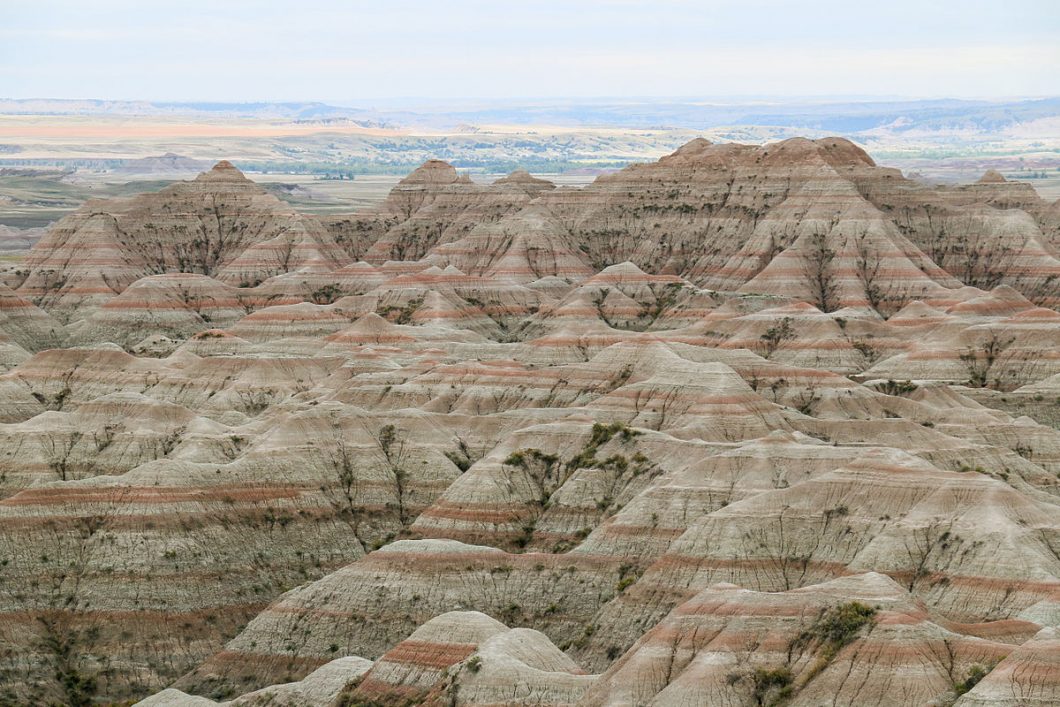Terrence Malick is truly a one of a kind filmmaker. His debut is “Badlands”, seemingly a road movie about a young couple of rebels on the run but actually the opposite of that restrictive description. He spent five years working on his sophomore effort, “Days of Heaven”, an amazing film about endless fields, grasshoppers and a love triangle, too. Then he literally took off and didn’t touch a camera for 20 years. “The Thin Red Line”, his triumphant return, shows that he’s still the same brilliant artist. But it’s not only the story of Malick that makes him so exceptional. His films by themselves are unique, so different from anything you usually see that it takes a while or even a second viewing to truly appreciate them. It’s disorienting at first to watch a genre film that doesn’t follow the conventions. Badlands is more or less an anti-road movie.
Martin Sheen stars as Kit, a disaffected garbage collector who looks like James Dean. He’s not really desperate, he ain’t revolted, but he’s lonely and bored. The film never really pinpoints the cause of his state of mind and behavior, but you can suppose that he’s the kind of guy who has trouble dealing with society and regular life. When he meets Holly (Sissy Spacek), it doesn’t feel like he falls passionately in love with her. Like she says herself, she’s not pretty and doesn’t have much personality. Yet she seems strangely mature and laid-back for a 15 year old; she’s really not the giggly airhead type. She also seems to share his detachment towards life, and when he wants to take off in his car, she follows him. They’re not your usual couple of young rebels. They’re not having raucous fun (they barely smile), they don’t have long conversations about anything, they don’t rebel flamboyantly against authority figures. We never see them making love, and when they kiss we don’t even feel passion. He would like to be a criminal in hope that it would fill the void in his life. She sees romance in their run from the law. Kit doesn’t enjoy killing: he just finds it convenient. Holly doesn’t approve per se, but she’s not bothered that much by it either.
“Badlands” is an incredibly assured film. Malick never goes for any tricks and doesn’t bother following conventions. His protagonists live in a treehouse for a while, they visit a friend on a farm, they invite themselves in the mansion of a rich man they don’t even know, they drive through the Montana desert… Some people are murdered, but it doesn’t influence radically the story. Holly gradually draws away from Kit, but they were never that close anyway. He wanted to have someone with him for the ride and she prefers to be with a flawed guy than alone but eventually, they’re lonely even when they’re together. More than anything, “Badlands” feels like “Le nez qui voque”, a novel from Quebec flower child Rejean Ducharme. The two pieces are very different, but the characters share a somehow similar attitude; it’s as if they felt uninvolved in they own lives, as if they were alienated. “Badlands” also introduces some of the elements that will become Malick’s signature: the naive, offbeat narration and the special attention granted to nature. And then there’s the wonderful score (borrowed by Tarantino along with the naive narration for “True Romance”), and the superb performances of Sheen and Spacek, as two kids who don’t really mean any harm. They’re just bored. And tired. And lonely. Most would kill themselves. In a way, they decided to make something of their lives…

